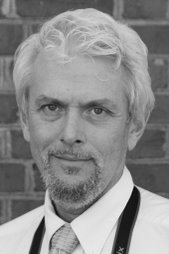Dorothea Shannon, Ph.D., the Prince George County superintendent of schools is finishing up her last weeks of service to the county.
On her watch, county schools, while staying resolutely within the lowest sixth of per-pupil expenditures of all school districts in the commonwealth, became accredited in far less time than many districts with proportionally larger budgets. The county's dropout rate is low and a high percentage of graduates go on to pursue higher education, careers in the military and well-paying jobs. It would seem the gentle Dr. Shannon has done an exemplary job.
Be that as it may, Shannon is not being handed a golden parachute on her way out. Far from it. In fact, two school board members, Peter Iaricci and Cindy Blanks, think she's getting a pretty raw deal.
It seems Shannon, the cheerful, workaholic career educator who seldom if ever took an unscheduled day off, has stacked up rather a lot of personal leave and sick days over the years. Upon her retirement, Blanks and Iaricci assumed she would be given the option of either working out her contract and taking the back pay or taking the accumulated days off and leaving office early.
That assumption ran up against the express wishes of the other three board members who didn't see the point in handing Shannon an additional $25,000 and change as a reward for her spotless attendance record.
Chairman Robert Cox, Vice Chairman Kenneth Parr and Member Hugh Mumford decided the schools could get along without Shannon over the period of her accumulated leave time, and so voted to deny her the option.
Shannon refuses to say publicly whether or not she's upset, and in fact would have preferred the story on the board vote to have never seen print. That speaks well of her natural, ladylike modesty, but what does it say about our county?
In the past six months or so, two other high-profile, highly-paid county workers either left abruptly (and in a huff) or were unexpectedly laid off. In the case of the laid-off worker, a tireless volunteer who has given 40 years to the county's rescue squad, the termination occurred one month before he qualified for county retirement benefits ... and seven months before qualification for Social Security benefits.
Like Shannon, neither of those former county workers is griping, but the question must be asked: "Does one risk taking a shafting in the long run if one chooses a career in the service of Prince George County?"
*************************
On another subject, this week's petition on the part of a Hopewell defense lawyer to have our commonwealth's attorney call a special grand jury is a matter deserving of considerable pondering.
One might argue any defense attorney worth his/her salt is always going to swing for the fences when advocating for a client, and in the case of Homer Eliades, there are four clients involved. Many such public petitions (and in court, lots of hail-Mary motions) are made so they will be on the record as the basis for possible appeals. Also, the smart advocate knows an opponent unnerved by a constant barrage of criticism, justified or not, is more liable to make errors which could compel the court to strike an indictment or, upon appeal, reverse a conviction.
Conventional wisdom would suggest Eliades is playing the psych-out game like the stone cold pro he is. Such tactical exercises have little to do with justice per se and much to do with a lawyer's professional duty to perform any action, within the law, which will militate in his client's interests.
Then again, my conversation with Jim Kouri, vice president of the National Association of Chiefs of Police was a real eye-opener. After he heard the facts - plus a few of the more persistent and believable conjectures - he surmised that Eliades' request may be justified, even absolutely necessary.
Kouri surmises that, after three weeks of this multi-layered investigation, if there's not yet enough evidence to base a charge on, investigators may be on a fishing expedition. And that's not a good thing.
Everybody, if one digs deep enough, probably has a little something in his/her past (say, accepting illegally dubbed copies of DVDs from a pal) that would be technically illegal but hardly worth a full tilt local-state-federal probe.
If investigators are looking into more serious allegations (of, say, civil rights violations reported by a dope dealer with multiple convictions who now says she was ripped off or shaken down by a bureau employee), most grand juries, according to Kouri, will indict on very little evidence and let the resultant trial sort it out.
I have a natural predilection in favor of letting any criminal investigation run its course unimpeded. But if good cops are hanging in limbo with their reputations on the line (along with those of their brother and sister officers), then all due speed would seem to be the order of the day.
One thing is for sure, and may account for much of the public hostility about the way Chief Marks has handled the media since January: A former Army intelligence officer pal of mine who knows the city well told me, "This is the first investigation of its kind in the history of Hopewell which has been, so far, leakproof." And for that fact alone, Chief Rex Marks is to be congratulated, indeed, praised to the skies.
On the question of whether or not his investigation is taking an unconscionable amount of time, the jury, if you'll forgive the expression, is still out.
